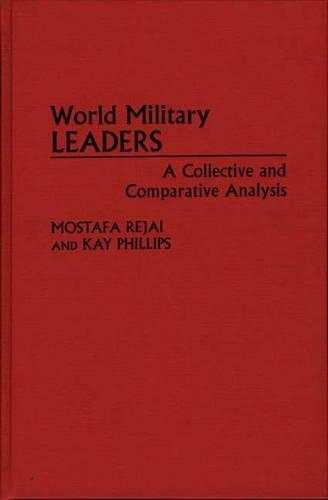
World Military Leaders: A Collective and Comparative Analysis
(Hardback)
Publishing Details
World Military Leaders: A Collective and Comparative Analysis
By (Author) Kay Philips
By (author) Mostafa Rejai
Bloomsbury Publishing PLC
Praeger Publishers Inc
19th January 1996
United States
Classifications
Tertiary Education
Non Fiction
Biography: philosophy and social sciences
Social, group or collective psychology
Sociology and anthropology
355.3310922
Physical Properties
Hardback
192
Description
Focusing on 45 military leaders from four continents and 13 countries, spread across four centuries, this study paints, for the first time, a collective, comparative portrait of high-ranking military officers. The authors develop an interactional theory of military leaders, stressing the interplay between sociodemographic variables, psychological dynamics, and situational factors. They examine age and birthplace, socioeconomic status, family life, ethnicity and religion, education and occupation, activities and experiences, and ideologies and attitudes. They find military leaders to be a remarkably coherent and homogeneous group of men propelled toward the military by a combination of nationalism, imperialism, relative deprivation, love deprivation, marginality, and vanity.
Author Bio
MOSTAFA REJAI is Distinguished Professor Emeritus at Miami University, Ohio, where he has .also been the recipient of an Outstanding Teaching Award. KAY PHILLIPS is Professer of Sociology and Anthropology at Miami University, Ohio. Professors Rejai and Phillips are coauthors of five other books on leaders and leadership. These are: Leaders and Leadership Reappraised (forthcoming), Demythologizing an Elite: American Presidents in Empirical, Comparative, and Historical Perspective (1993), Loyalists and Revolutionaries: Political Leaders Compared (1988), World Revolutionary Leaders (1983) and Leaders of Revolution (1979).
